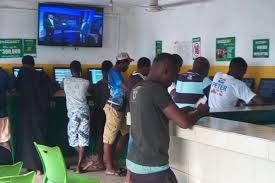Nigeria has projected a Gross Domestic Product (GDP) worth N900 billion by year 2020 to ensure that the country realises its vision of being the top 20 economies in the world within the period.
Speaking in Kaduna at three -day seminar organised by Central Bank of Nigeria for Finance Correspondents and Business Editors ,Managing Director, Financial Derivatives Company Limited,
Bismark Rewane said the Financial System Strategy FSS 2020 was developed to make Nigeria the safest and fastest-growing financial system among emerging economies. The strategy according to him was designed to strengthen the Nigerian domestic financial markets, enhanced their integration with external financial markets and engineer Nigeria’s evolution into an international financial centre. He explained that GDP measures the size and activities in a country at a particular point in time.
He said that the UN Statistical Commission (UNSC) recommends that countries rebase their GDP every five years, adding that Nigeria had been using 1990 base year until recently that it rebased to 2010.
Rewane said the heightened attention the rebasing has attracted suggests a need for a more structured argument for the exercise adding that investment is necessary for capital accumulation and economic growth.
“In April 2014, Nigeria rebased its GDP and changed its base year to 2010 from 1990. As a result, Nigeria is now regarded as a medium income economy. The rebasing exercise helped incorporate the informal sector into the national accounts and this showed a great increase in activities of the service sector of the Nigerian economy,” he said.
He however said that rebasing has enabled the service sector to be better covered and has shown that economic activities such as wholesale and retail trade, information and communication, real estate services, human health and social services, professional, scientific and technical services have gained importance in the country.
He said the service sector is expected to grow fastest and ahead of sectors such as industry and agriculture adding that while Nigeria is becoming slightly more diversified, the country is heading towards a more service-oriented economy.
Speaking further, he said rebbasing has the tendency to increase money supply, thereby lowering interest rate, adding that lower interest rate implies increase in domestic investment but may lead to a reduction in foreign capital inflow.
He said “ rebasing can either a blessing or a curse for investment depending on how well it is managed and the fact that it may boost investment in the aggregate is reinforced because more attention is likely to be accorded to some investment opportunities that may present themselves as a result of the newly-emerging sub sectors such as whole sale and retail trade, information and communication, real estate services, human health and social services, professional, scientifi and technical services.”
“In terms of performance so far, he said highest levels of achievement might have been recorded in the areas of predictable exchange rate, single digit inflation and financial institutions (banking) soundness. At the other extreme end however, achievements inthe areas of integrating informal financial sector, achieving a strong
knowledge-based
capital market and creating enabling environment and finance for SMEs can still be described as low. Also, in the other remaining areas, the levels of achievement can still be described as marginal and requiring much effort,” he said.
On investment,he said investment
entails additions to the economy’s capital stock. It involves the purchase of goods that are not consumed today but are used in the future to create wealth.
He said investment can also be classified into domestic and foreign investments. The components of domestic investments are private domestic investment and publicdomestic investment, the
latter being investments by government and public enterprises on social and economic infrastructures, real estate and tangible assets.



